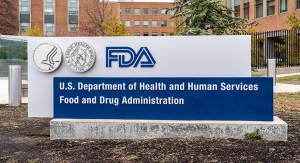Erik Goldman07.01.11
An industry friend of mine, a high-level executive at one of the major practitioner channel nutraceutical companies, recently told me a disturbing story about a doctor he knows.
This doctor, a primary care MD affiliated with several California hospitals, is committed to nutrition-based natural healthcare, and tends to go with lifestyle-based therapies, dietary changes and nutraceuticals as first-choice approaches rather than pharmaceuticals and invasive procedures.
Apparently, this physician got a call from an administrator at one of the area hospitals, who was concerned that the doctor was not following appropriate patient management guidelines because his admission rate—the number of patients he was sending into the hospital—was noticeably lower than other similar primary care doctors in the area.
In short, the administrator was saying, “You’re not sending us the expected amount of patients, so you must be doing something wrong.”
The doctor quickly stood up for himself and told the hospital that in fact he was doing something right: He was helping his patients restore health, prevent disease and avoid hospitalization. That’s what a good doctor should be doing, right?
Apparently not.
This story, unfortunately, is all too common. I’ve heard many similar tales. They reveal an ugly truth about American healthcare. The hospital systems—which are getting bigger and more consolidated by the minute—view people as units of commerce, sources of revenue. They view community-based physicians not as healers, not as professionals dedicated to helping people get well, but as mediators of patient referrals, plain and simple.
In recent years, the large hospital systems have been purchasing small physician practices at an unprecedented rate. Current estimates are that one in six primary care physicians are now full-out employees of hospital systems, or are working in practices fully owned by hospital systems. Why? Because dwindling insurance reimbursement coupled with rising overhead costs and insane paperwork hassles have made independent private and small group practice nearly impossible for many primary care doctors.
Data from Holistic Primary Care’s recent survey of 2000 U.S. primary care doctors indicate that one in five is considering making a major change in his/her practice during the next two to three years. Of those considering change, 35% are considering selling their practices to a hospital network and/or seeking salaried positions in a hospital system.
In the last few years, a cadre of consultants has emerged that specialize in helping doctors sellout to hospitals. In fact, there’s a sub-specialty within the legal profession that’s focused on medical practice valuation and execution of these transactions.
Residency training programs in primary care are prepping the next generation of primary care doctors not for independent practice, as in the past, but for life on the Disease Plantation, where their primary job is not to think independently about how to help people get well, but rather to follow “evidence-based” protocols and guidelines, and make appropriate referrals based on statistical averages.
As if that were the only option. It’s not, of course, but we’ll get to that in a minute.
The appeal of selling off to a hospital is understandable: a doctor who does so is suddenly relieved of having to oversee two or three billing clerks, of having to manage a business. He’s got a more predictable income and fixed work hours. No more worry about “the business stuff;” he can just concentrate on medicine. He’s well-ensconced in a massive establishment that’s got his back…so long as he behaves appropriately, follows appropriate treatment guidelines and makes appropriate referrals. And the administrators and medical directors decide what’s “appropriate.”
And then there’s the problem called “conflicting incentives.” Hospitals make money when patients get admitted, when they undergo procedures, when they need ancillary services. In short, hospital systems have big incentive to increase the number of referrals they get—hence their interest in buying physician practices.
In principle, the payors (Medicare, Medicaid and private insurance plans) have incentive to keep people out of hospitals and reduce the number of procedures. In reality, though, the private insurers really haven’t had a whole lot of incentive to prevent conditions that require procedures and hospital admissions because they could always pass along the increased costs in the form of higher premiums.
That’s starting to change, in part due to the Obama healthcare reform plan. Suddenly, it won’t be so easy for insurers to raise premiums. Employers will simply say, “Screw it; I’ll pay the extra taxes and my employees can get their insurance through the government.”
The insurance plans now have real incentive to cut their “medical spend.” And with all the deficit hawking in Washington these days, you can bet the Fed plans won’t be encouraging exuberant healthcare service utilization! That means insurers and government-funded plans now have very strong motivation to either withhold more care than they already do, or start to get serious about prevention.
Caught in the middle of these fiercely conflicting incentives is Joe & Jane Doctor, who somehow have to deal with the hospitals telling them they’re doing wrong by under-referring, while insurers chide them for over-utilizing expensive services.
If you are a health policy think-tank type, you might argue this is an elegant, dynamic tension that leads to the most appropriate utilization, fosters innovation and optimizes outcomes. If you’re a doctor in the trenches, you’ll probably say this is crazy-making nonsense that has nothing to do with what’s really good for patients.
Now, the good news is doctors do have other options besides selling the practice or bailing out of medicine altogether. Our survey showed that for every doctor who contemplates selling his/her practice or seeking a salaried job, there’s one who’s considering a move to a non-insurance based practice model. We’re talking about direct-pay fee-for-service and “membership” or so-called “concierge” practice models.
Though direct-pay models certainly have their own challenges, they do eliminate third party intermediaries in the practitioner-patient relationship, and all the data I’ve seen show marked improvements in health outcomes. Simply put, doctors who can spend more time, devote more attention, think for themselves and apply their best clinical judgment on behalf of their patients are better at helping people get better. Despite the continued depressed economy, growth of direct-pay medical practice is robust and holding steady.
What do these trends mean for the nutraceuticals industry? Well, if I were running a practitioner channel company, I would be doing intensive market research and needs assessment at both ends of the spectrum—the direct-pay, private practice stalwarts and the formerly private, now hospital-owned physicians.
Both have—or will have—strong incentive to do a better job of preventing chronic disease. The direct pay docs truly need to demonstrate their value to their patients who are paying out of pocket and expect results. And once the insurance plans start putting a hard squeeze on the hospitals, those physicians who’ve sold their practices to hospital networks may soon find themselves under strong pressure to minimize use of expensive services.
In both settings—on or off the Disease Plantation—there could be tremendous opportunities for companies manufacturing products that can help people maintain real health or attenuate the chronic diseases now bankrupting our systems.
This doctor, a primary care MD affiliated with several California hospitals, is committed to nutrition-based natural healthcare, and tends to go with lifestyle-based therapies, dietary changes and nutraceuticals as first-choice approaches rather than pharmaceuticals and invasive procedures.
Apparently, this physician got a call from an administrator at one of the area hospitals, who was concerned that the doctor was not following appropriate patient management guidelines because his admission rate—the number of patients he was sending into the hospital—was noticeably lower than other similar primary care doctors in the area.
In short, the administrator was saying, “You’re not sending us the expected amount of patients, so you must be doing something wrong.”
The doctor quickly stood up for himself and told the hospital that in fact he was doing something right: He was helping his patients restore health, prevent disease and avoid hospitalization. That’s what a good doctor should be doing, right?
Apparently not.
This story, unfortunately, is all too common. I’ve heard many similar tales. They reveal an ugly truth about American healthcare. The hospital systems—which are getting bigger and more consolidated by the minute—view people as units of commerce, sources of revenue. They view community-based physicians not as healers, not as professionals dedicated to helping people get well, but as mediators of patient referrals, plain and simple.
In recent years, the large hospital systems have been purchasing small physician practices at an unprecedented rate. Current estimates are that one in six primary care physicians are now full-out employees of hospital systems, or are working in practices fully owned by hospital systems. Why? Because dwindling insurance reimbursement coupled with rising overhead costs and insane paperwork hassles have made independent private and small group practice nearly impossible for many primary care doctors.
Data from Holistic Primary Care’s recent survey of 2000 U.S. primary care doctors indicate that one in five is considering making a major change in his/her practice during the next two to three years. Of those considering change, 35% are considering selling their practices to a hospital network and/or seeking salaried positions in a hospital system.
In the last few years, a cadre of consultants has emerged that specialize in helping doctors sellout to hospitals. In fact, there’s a sub-specialty within the legal profession that’s focused on medical practice valuation and execution of these transactions.
Residency training programs in primary care are prepping the next generation of primary care doctors not for independent practice, as in the past, but for life on the Disease Plantation, where their primary job is not to think independently about how to help people get well, but rather to follow “evidence-based” protocols and guidelines, and make appropriate referrals based on statistical averages.
As if that were the only option. It’s not, of course, but we’ll get to that in a minute.
The appeal of selling off to a hospital is understandable: a doctor who does so is suddenly relieved of having to oversee two or three billing clerks, of having to manage a business. He’s got a more predictable income and fixed work hours. No more worry about “the business stuff;” he can just concentrate on medicine. He’s well-ensconced in a massive establishment that’s got his back…so long as he behaves appropriately, follows appropriate treatment guidelines and makes appropriate referrals. And the administrators and medical directors decide what’s “appropriate.”
And then there’s the problem called “conflicting incentives.” Hospitals make money when patients get admitted, when they undergo procedures, when they need ancillary services. In short, hospital systems have big incentive to increase the number of referrals they get—hence their interest in buying physician practices.
In principle, the payors (Medicare, Medicaid and private insurance plans) have incentive to keep people out of hospitals and reduce the number of procedures. In reality, though, the private insurers really haven’t had a whole lot of incentive to prevent conditions that require procedures and hospital admissions because they could always pass along the increased costs in the form of higher premiums.
That’s starting to change, in part due to the Obama healthcare reform plan. Suddenly, it won’t be so easy for insurers to raise premiums. Employers will simply say, “Screw it; I’ll pay the extra taxes and my employees can get their insurance through the government.”
The insurance plans now have real incentive to cut their “medical spend.” And with all the deficit hawking in Washington these days, you can bet the Fed plans won’t be encouraging exuberant healthcare service utilization! That means insurers and government-funded plans now have very strong motivation to either withhold more care than they already do, or start to get serious about prevention.
Caught in the middle of these fiercely conflicting incentives is Joe & Jane Doctor, who somehow have to deal with the hospitals telling them they’re doing wrong by under-referring, while insurers chide them for over-utilizing expensive services.
If you are a health policy think-tank type, you might argue this is an elegant, dynamic tension that leads to the most appropriate utilization, fosters innovation and optimizes outcomes. If you’re a doctor in the trenches, you’ll probably say this is crazy-making nonsense that has nothing to do with what’s really good for patients.
Now, the good news is doctors do have other options besides selling the practice or bailing out of medicine altogether. Our survey showed that for every doctor who contemplates selling his/her practice or seeking a salaried job, there’s one who’s considering a move to a non-insurance based practice model. We’re talking about direct-pay fee-for-service and “membership” or so-called “concierge” practice models.
Though direct-pay models certainly have their own challenges, they do eliminate third party intermediaries in the practitioner-patient relationship, and all the data I’ve seen show marked improvements in health outcomes. Simply put, doctors who can spend more time, devote more attention, think for themselves and apply their best clinical judgment on behalf of their patients are better at helping people get better. Despite the continued depressed economy, growth of direct-pay medical practice is robust and holding steady.
What do these trends mean for the nutraceuticals industry? Well, if I were running a practitioner channel company, I would be doing intensive market research and needs assessment at both ends of the spectrum—the direct-pay, private practice stalwarts and the formerly private, now hospital-owned physicians.
Both have—or will have—strong incentive to do a better job of preventing chronic disease. The direct pay docs truly need to demonstrate their value to their patients who are paying out of pocket and expect results. And once the insurance plans start putting a hard squeeze on the hospitals, those physicians who’ve sold their practices to hospital networks may soon find themselves under strong pressure to minimize use of expensive services.
In both settings—on or off the Disease Plantation—there could be tremendous opportunities for companies manufacturing products that can help people maintain real health or attenuate the chronic diseases now bankrupting our systems.



























